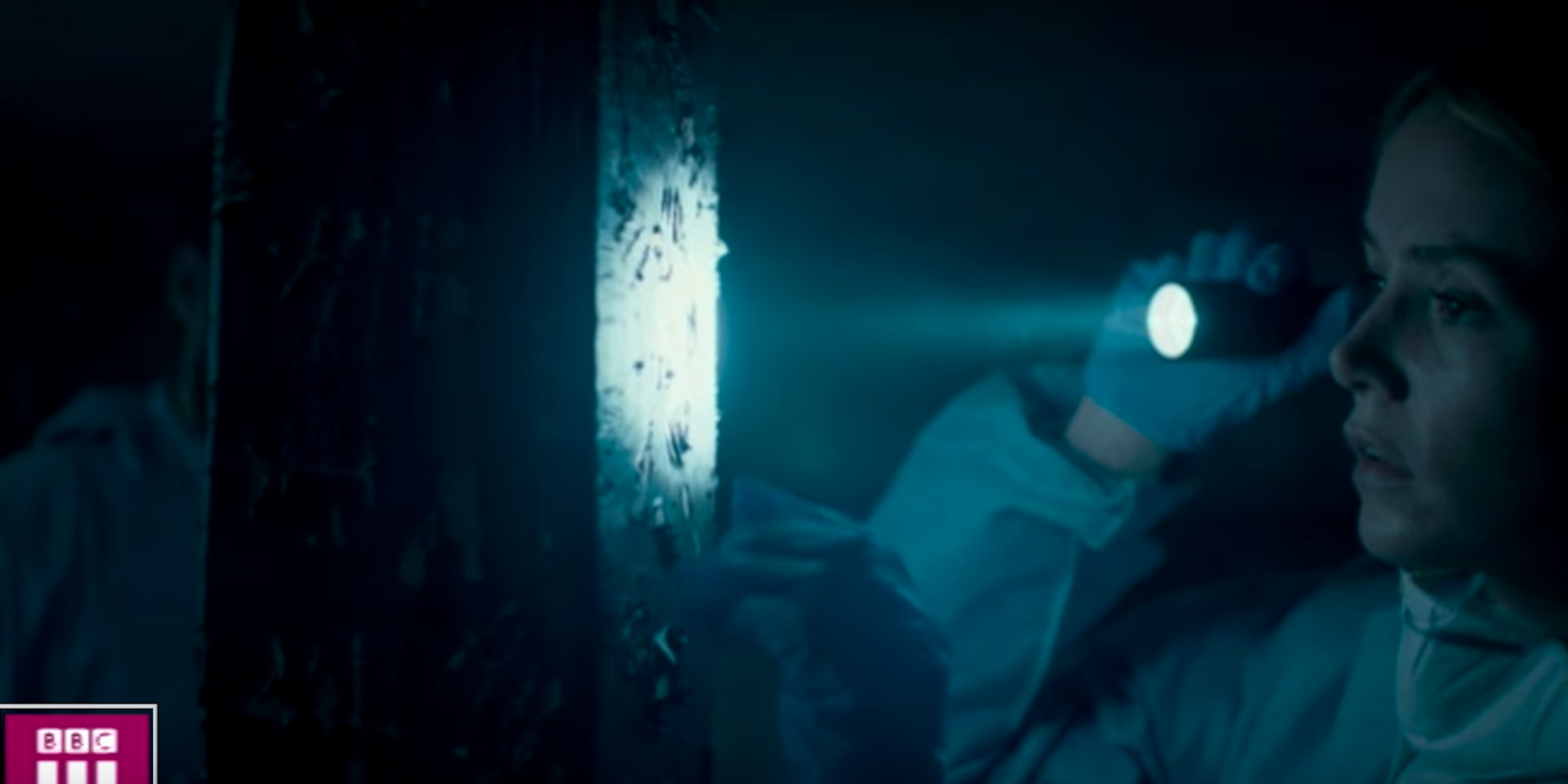Over a year after debuting on the BBC, writer-creator Marnie Dickens’ crime drama Thirteen lands on Amazon for your streaming pleasure. It’s as dreary and drab as the litany of U.K. crime shows (Broadchurch, Luther, etc.) that came before it, but it doesn’t have much to separate from the pack.
It’s a five-episode story about a 26-year-old woman, Ivy (Jodie Comer), who was kidnapped at age 13 and has finally escaped her captor to return home. In recent years there has been a rash of missing-person-comes-home stories on TV (both versions of The Returned, The Missing, The Five, The Family, among others); movies (Room, Gone Girl); and books (Harlan Coben’s Home, Amy Gentry’s Good as Gone, Gone Girl and Room again). Aside from both incarnations of Gone Girl, these emotionally draining stories aren’t popping wheelies on the zeitgeist, but it’s compelling genre setup. It takes an inherently attention-grabbing premise and weaves in any number of themes to deliver a character-based drama or nuts-and-bolts police procedural. Or, in the best examples, both.
Thirteen doesn’t lack for familiar and compelling elements, but it is hurt by sticking so closely to genre conventions. In the end the overwhelming sense of sameness swallows up most of the series’ strongest moments. But there’s reason enough to binge.
It occupies an awkward space, as its five episodes simultaneously feel like not enough time to fully flesh out the characters and like a slog. The trouble with stories like this one is that the drama side ends up covering the same beats: the victim’s awkward and always slow acclimation to being home; a broken family acting like everything is fine until they can’t fake it anymore; frequent police interviews that end with the family getting angry. Thirteen’s approach to the material is straightforward and workmanlike, going through its paces like a competent and placating beat cop.
An overwhelming sense of sameness sets in quickly. I’ve seen these characters before and you’ve seen these characters before. The show tries to do right by its cast, giving each of Ivy’s family members and few old friends ample screen time, but the attempt to cover everyone left me feeling like the characters were all standard issue. You won’t be surprised to know that Ivy’s parents, Christina (Natasha Little) and Angus (Stuart Graham), turned to infidelity to cope with Ivy’s disappearance. Ditto that Ivy’s boyfriend Tim (Aneurin Barnard) has moved on.
Covering familiar drama is nothing new to this, or any, genre, but the story has too few moments that genuinely break the mold. The story would’ve been sharper if the focus had been limited to just Ivy at the expense of everybody else. She’s the outlier among the characters and she becomes even more important when her kidnapper strikes again. But instead there are endless shots of Ivy staring blankly or breaking down into hysterics. Comer performs these scenes well, and while they may be true to real life, it doesn’t make for compelling television.
Ivy gains more agency as the story progresses, and the story’s best plot moments involve a few twists for her, such as Ivy’s kidnapper taking another girl to replace Ivy and questions about Ivy’s relationship with her abductor. It’s just too bad they arrive so late in the series.
The police investigation side of the story fares a bit better than the family drama, but it fires too many blanks in its attempts to pick up the story’s slack. The lead detectives, Elliot Carne (Richard Rankin) and Lisa Merchant (Valene Kane), spend most of their investigation chasing their tales, and the rest of the time battling a rap sheet’s worth of cliches. If you’ve seen enough of this type of story, you know that it’s not uncommon for one of the investigating detectives to become consumed by the work, and if you don’t think that happens here you haven’t followed the clues.
The performances by Rankin and Kane are hamstrung by the complete predictability of their arc. Yet watching the detectives navigate the delicate balance between respecting Ivy’s trauma against the urgency of their search for the new missing girl brings out the best in the actors and writing.
The crime itself is supposed to be one of the major alluring elements of Thirteen, but the more we learn about the case the less enticing it becomes. There is nothing interesting about the antagonist, either in his methodology or psychology. Like a microcosm of the show itself, the crime and perpetrator are twisted and interesting on paper, but the theoretical is not realized.
Dickens confirmed that this will be the only season of Thirteen. When every series runs longer than it needs to, it’s refreshing to stream a finite arc. You’ll finish this thing and be rewarded with closure. If you’re a genre enthusiast, Thirteen will hit all the beats—even if it feels like a cover.


